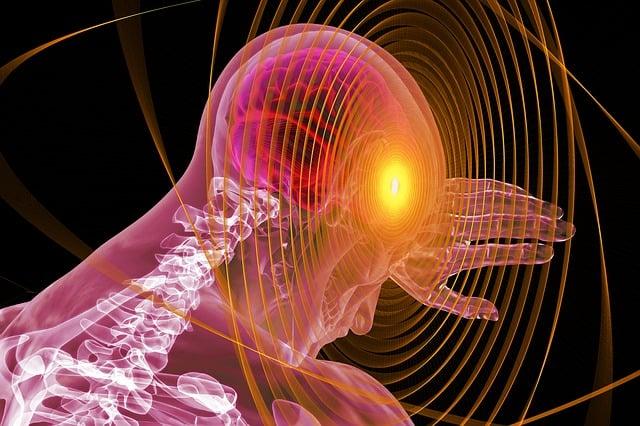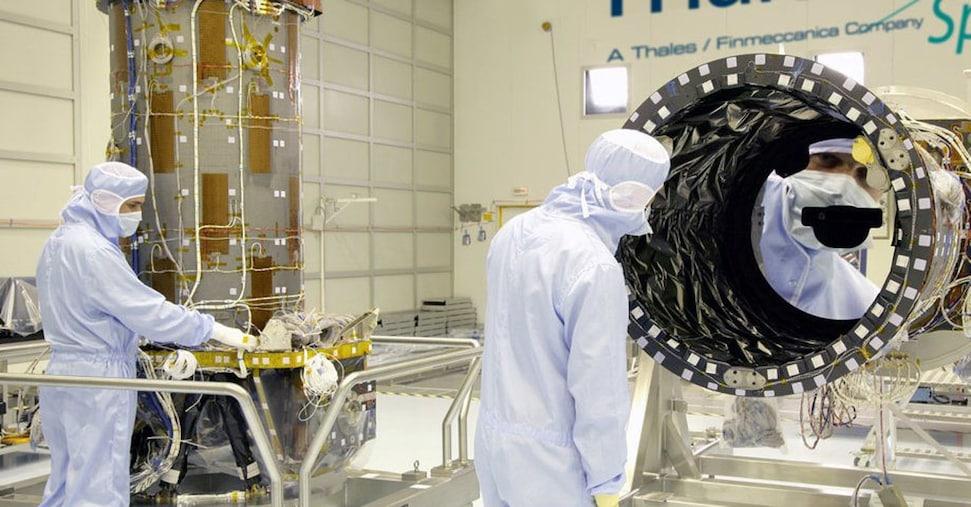Approccio innovativo per i disturbi mentali e le malattie neurodegenerative già brevettato: è il risultato di un lavoro condotto da ricercatori dell’Università Cattolica del Sacro Cuore di Roma - Fondazione Policlinico Universitario A. Gemelli IRCCS in collaborazione con l’Università di Salerno Roma, 8 ottobre 2025 - Sotto forma di ‘spray nasale’, minuscole particelle d’oro che,
Lithium and gold nasal spray: This is an Italian research method that focuses on the mind
An innovative approach for mental disorders and neurodegenerative diseases: This is the result of the work carried out in collaboration with the Catholic University of the Sacred Heart of Rome - Fonazione Policlinic - Univerriorio A. Geelli IRMKs Salom University
Rome, October 8, 2025 - In the form of "nasal spray", small gold particles that, acting as spacecraft, send a drug directly to the brain: developed by researchers from the Catholic University - Fondazione Policlinico Universitario A. Gemelli IRCCS, a new nanotechnological device for the treatment and prevention of neuropsychic and neuropsychic diseases.
These are the anti-infectives of lithium (clinically used in manic-alsessive syndroder disease, manic-depressive infectious diseases, many things are related to recent viral studies. Neurological diseases.
Published in the advanced materials of the prestigious journal and already patented, Idea, Faculty of Medicine and Faculty of Medicine of the Agostino Gemelli IRCCS University and Research Faculty of the Agostino Gemelli University Research University.
Il team di ricerca, guidato dal prof. Roberto Piacentini, associato di Fisiologia presso l’Università Cattolica e la Fondazione Policlinico Universitario A. Gemelli IRCCS, dal prof. Antonio Buonerba, associato di Chimica Inorganica presso l’Università di Salerno, e dai proff. Alfonso Grassi, ordinario di Chimica Inorganica presso l’Università di Salerno, e dal prof. Claudio Grassi, ordinario di Fisiologia e direttore del Dipartimento di Neuroscienze dell’Università Cattolica – Fondazione Policlinico Universitario Agostino Gemelli IRCCS, ha dimostrato che è possibile inibire direttamente nel cervello l’attività di un enzima che svolge un ruolo chiave nello sviluppo delle suddette malattie (la Glicogeno Sintasi Chinasi-3 beta, GSK-3β) mediante litio veicolato da nanoparticelle d’oro somministrate per via intranasale.
This innovative therapeutic approach, the subject of a patent filed by research institutions in Italy and abroad, makes it possible to achieve the same effects as orally administered lithium, but with significantly lower concentrations of this ion and by directing the ion specifically to the target organ, the brain, reducing the risk of side effects.
In the study, the researchers showed the potential of this new nanotechnology for the GSK-3β enzyme that had a restored level of effort in Alzheimer's disease, without causing side effects in affected animals.
The research was carried out for Alzheimer's workers (USA) to acting professors (USA) to professors at Buonazio and Buostino Gemelli IRCCS, with current research funding.
Studies are currently in progress aiming to confirm additional applications of this device and to complete its safety evaluation so that it can quickly proceed to clinical use.
GSK-3β is an essential enzyme for many cellular functions. It is believed that more than 100 proteins are the targets of this kinase. It is nothing more than a molecular machine that works by connecting chemical groups (phosphates) to other molecules to change their activity.Therefore, abnormal activation of this enzyme can determine the dysfunction of target proteins and contribute to the development of various diseases.
Regarding his disease, GSK-36 is involved in various diseases, such as the degeneration of the "WNT / β Nntin" Patchway, such as the disease.Viruses 1 and SARS-2-2. This enzyme is under control in specific areas of the brain, so these diseases can be put to toast.
Lithium is a potent inhibitor of GSK-3β and is by far the drug of choice for the treatment of neuropsychiatric disorders such as bipolar disorder. The lithium concentration required to counteract the molecular mechanisms of neurodegenerative diseases or viral infections affecting the central nervous system is above the acceptable level in terms of risk/benefit ratio, significantly limiting the therapeutic applications of this cation.
"Our challenge - explained Prop. Piantini - you will help us use it to transfer it and - it can be delivered to the site and it will be transferred to the site.
“Le nanoparticelle d’oro – aggiunge il prof. Buonerba – rappresentano il tool ottimale per questo tipo di strategia. Esse possono essere funzionalizzate con glutatione che, da un lato favorisce la formazione di aggregati che entrano facilmente nelle cellule e, dall’altro, permette di legare molecole o ioni, come il litio. Una volta che gli aggregati di nanoparticelle entrano nelle cellule, questi vengono disgregati e il litio viene scaricato dentro le cellule, consentendo di ottenere concentrazioni terapeutiche efficaci di tale ione a fronte di basse dosi di somministrazione”.
In addition, professor Piactini - the pifferal system represents another way to reach the brain directly bypassing the work circulation.
"The versatility of this new drug subject is extraordinary - emphasizes Professor Antonio Bonarba - the developed nanoparticles can be loaded with different pharmacologically active ingredients and are able to escape biological cellular defenses, which allows targeted transfer of these to specific physiological sites of action."
“In questo lavoro – spiega la dott.ssa Giulia Puliatti, primo autore dello studio insieme al prof. Buonerba – abbiamo dimostrato che 5 giorni di somministrazione di nanoparticelle d’oro funzionalizzate con glutatione e rivestite di litio (chiamate LiG-AuNPs) sono in grado di inibire significativamente l’attività della chinasi GSK-3β nell’ippocampo dei topi e lo stesso trattamento ripetuto per 2 mesi comporta una significativa regressione del deficit di memoria esibito da un modello murino di malattia di Alzheimer, analizzato a livello comportamentale e molecolare”.
To new treatment options
"Newer lithium-based drugs are widely used in the treatment of nephrotic syndrome, but unfortunately they become hypotensive in pill form and not intellectually effective."
"The ability to provide an effective concentration of lithium in nerve cells through the 'cinema administration of low doses, thanks to the important help for the party. We believe that our nanotého device that can encourage the development of a pangeraputic approach not only for the patient but also for the janiattric method. Neurodegenerative and viral in the state of GSK-3β activity at the brain level plays a key role.
“Ultimately,” concludes Prof. Alfonso Grassi, “the simple synthesis of nanoparticles simplifies the manufacturing process and keeps low the costs of developing a product that will be available on the pharmaceutical market in the near future.”








